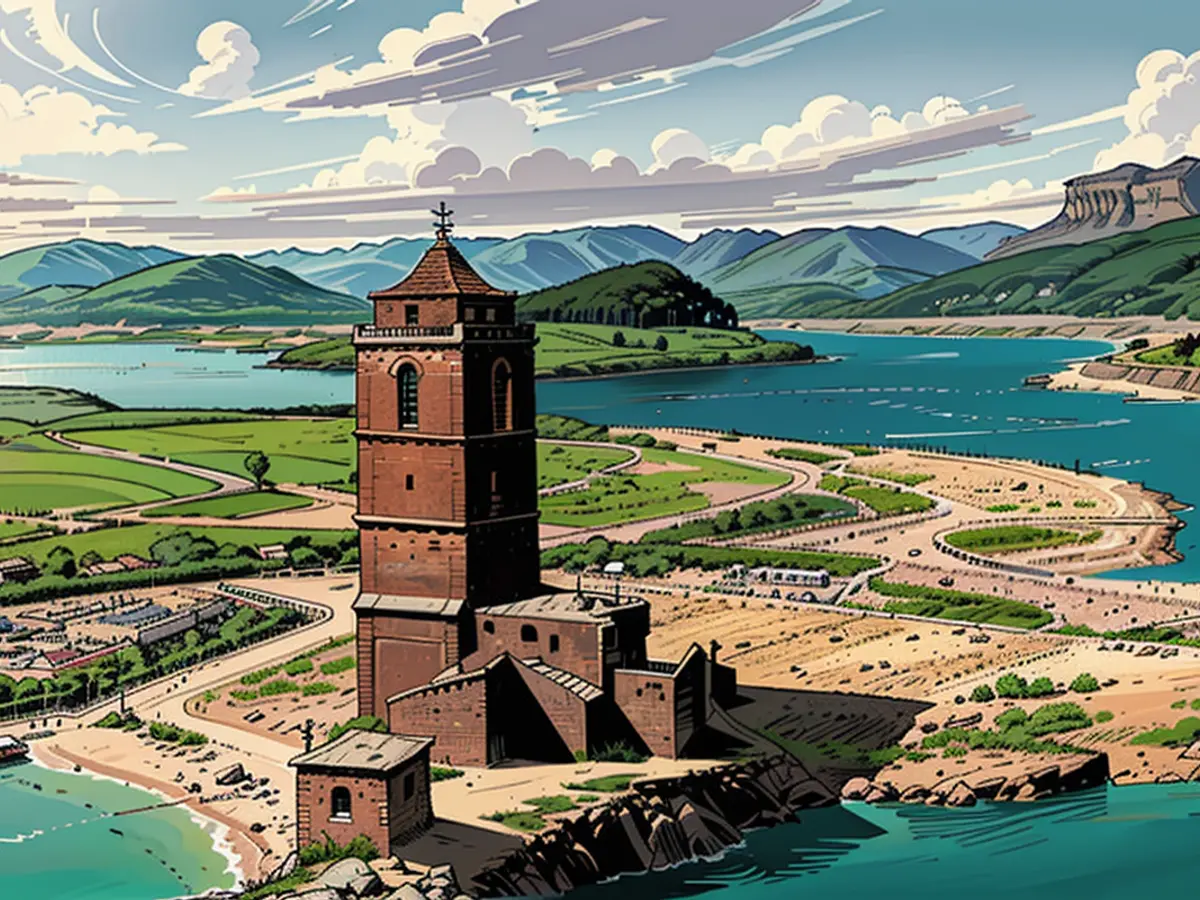Investigative reportage - On dry land: Arte documentary "Where the rivers disappear to"
The problem can be well expressed through a comparison of three numbers worldwide. Globally, water usage is divided as follows: 10 percent for private households, 20 percent for industry, and 70 percent for agriculture.
The agriculture sector is "therefore also primarily responsible for the global water crisis." The documentary filmmakers Manuel Daubenberger and Felix Meschede bring up this point in just a few minutes in their film "Where the Rivers Disappear," which will be aired on Arte on Tuesday (9. July) at 20.15 hours.
Water is scarce, but the global demand is increasing exponentially. The term "extreme water stress" is used when more than 40 percent of the water is used in a region, which is available through rain or rivers. Currently, more than a quarter of agricultural land is in water-stressed regions, as depicted.
Some local planners attempt to mitigate the consequences, but they sometimes achieve the opposite. For example, in Egypt: The government has built concrete canals in the Nile Delta to transport water to settlements and fields with minimal losses. Journalist Nada Arafat describes the negative consequences: "The soil is no longer being washed. Therefore, the salt content is increasing. In addition, the groundwater level is dropping because the water can no longer penetrate the soil."
Farmer Mohamed el-Gogary is a potato farmer in Egypt. "Of course, we have concerns," he says. "We are an agricultural country." We hear every day about water problems, droughts, and water crises in other countries. We are dealing with problems in irrigation and a decline in rainfall. All of this should worry us."
The documentary explores the question of why the essential resource water is becoming increasingly scarce and who is responsible for it along six rivers on four continents. A significant portion of freshwater consumption goes into the production of feed. Excessive meat consumption is therefore also contributing to the fact that powerful rivers like the Spanish Ebro or the Colorado in the USA and Mexico are drying up. Meanwhile, large agribusiness corporations are earning billions from this.
With the overuse of water comes often the contamination of this essential resource. Europe has outsourced its dirtiest industries to countries like India. Approximately 20 percent of global water pollution comes from the textile industry, as the documentary calculates. The film offers rare insights into Indian factories and the lives along their effluents.
However, the Arte documentary not only shows problems but also introduces people with solutions: In France, dams are being dismantled to revive rivers, in an Egyptian oasis, the inhabitants are experimenting with hydroponics, or growing in water without soil. And in India, the so-called waterman uses an ancient technique to make rivers flow again in the desert that have been dry for decades. Signs of hope.
- The documentary film "Where the Rivers Disappear," set to air on Arte, focuses on water usage issues in Berlin and other parts of Germany, highlighting Manuel Daubenberger and Felix Meschede's reportage.
- Despite the widespread water crisis, some local planners in Egypt, like the government constructing concrete canals in the Nile Delta, unintentionally exacerbate the problems, leading to soil erosion, salt accumulation, and dropping groundwater levels, as reported by Nada Arafat.
- The Media in Germany raises concerns about the escalating water crisis globally, with a specific focus on agricultural water consumption and its impact on rivers like the Spanish Ebro and the Colorado in the USA and Mexico, as depicted in the documentary.
- The water crisis in Germany and Egypt is not only an environmental concern but also impacts the media and television outlook, with Arte airing a reportage on the consequences of the rising water demand and excessive meat consumption.
- The different perspectives on water usage and solutions from various countries, such as France's dam dismantling, Egypt's hydroponic experiments, and India's ancient water management techniques, are showcased in the documentary, offering glimpses of hope for addressing the water crisis on a global scale.







